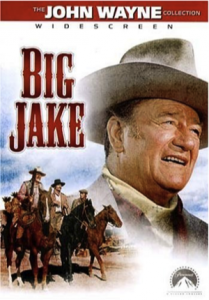Some Birthday Thoughts on Aging
My birthday is this week. The big 63! That makes me think about aging and how we can better interact with older patients. After all, just another 37 years or so and I might admit to being an “older” patient.
So let me tell you about two movies, and how they made me think about aging.

Aging and Respect
One of my favorite classic movies is “Big Jake”, starring John Wayne, who plays a somewhat disagreeable older Texas rancher around 1909. When his ranch is attacked and his grandson kidnapped, his estranged wife calls him back from living in the wild to go after the bad guys. He’s out-of-place in the time: he rides a horse instead of a car, compromises on nothing and has traditional cowboy values. But a recurring line in the movie as people meet Jacob McCandles is: “I thought you were dead”.

So, I recently saw another movie, “The Experimenter”, that I believe fits into how we think about aging and how we treat older patients. The Experimenter tells the story of Stanley Milgram, a controversial psychology professor at Yale, Harvard and NYU who studied how people respond to authority.
Dr. Milgram established several interesting trends on aging:
- most individuals will obey authority, even when it bothers them to do so;
- many individuals will follow the lead of a group, even when they disagree.
So, one of the things I’ve noticed as I’ve gotten older is that people have expectations of you. I first noticed this about 58 years ago when my mom told me to “act my age” – five. Are you supposed to “act your age” when you get older, too?

People seem to have expectations of aging individuals, and these are not always good.
Societal expectations are communicated everywhere through stories, in newspapers, on television, and through jokes. Expectations might include frailty, dementia, incontinence and the like, even though many, many older individuals experience none on these. When you get older you are supposed to be absent-minded, easily confused, forgetful, unkempt, have difficulty driving, and perhaps even wet your pants. When you get older you are supposed to have nothing to contribute.
So, as Dr. Milgram established that individuals respond to the messages and expectations of society, would you not think that we might be pulling our older people down by discounting and disrespecting them?
In a classic psychology experiment a young man goes along with a group who purposely provides a false response. Could we be setting up our older friends to be absent-minded, easily confused, or forgetful to go along with what they perceive as the expected behavior of older people?
The patriarchs of old in the Bible lived to remarkable ages, hundreds and hundreds of years old. Perhaps those remarkable ages ended as the world became populated and they began to hear again and again, “I thought you were dead”, until they finally died just to meet the expectation of others.
We have an opportunity to interact differently with aging older family, friends and patients.
When we expect the best from people – young or old- they are more likely to meet those expectations.
Physiologically, average body functions of all organs are declining even before the age of 20. But for each type of function – heart, kidneys, liver, and such – we find patients who maintain function and others who experience large declines. There are older individuals who are quite healthy in many ways.
There may come a time when a person’s body or mind fails – when they can’t manage their affairs or can no longer drive – but it’s not necessarily associated with a particular age.
Let’s be supportive and have high expectations of everyone. You’ll appreciate it as you get older.
Resources:
- http://www.cdc.gov/aging/index.html
- http://www.cdc.gov/physicalactivity/basics/older_adults/
- http://www.huffingtonpost.com/2014/02/25/what-other-cultures-can-teach_n_4834228.html











